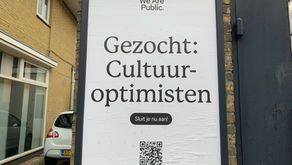Canary Wharf
- Judith Weir
- Apr 24, 2018
- 2 min read

Having coincidentally alluded, in my previous post, to my first working visit to Canary Wharf in 1990, I made my second visit last Monday, so that’s just 28 years later. Which seems to suggest that this architectural behemoth is not a place where composers need to go very often. Out to change that were law firm Clifford Chance who invited me along to a regular after-work series of talks and music, together with fellow composer Robin Haigh, cellist Richard Harwood and our compere for the night, Stephen Newbould (representing Spitalfields Music, who produced the event).
On entering, our first naïve reaction was to the sheer scale of everything round about us. We walked for long stretches through hugely spacious, completely empty hallways, to a fine auditorium which we imagined generally sees a lot of powerpoint and projected spreadsheets. But whether by chance or design, the acoustic was ideal for our programme (though, as so often, feeling rather dry to Richard, at the business end of the cello.)
It was reassuring to meet a friendly audience during our Q&A session, and in a reception afterwards which seemed to us musicians (now in total Charles Dickens urchin mode) extremely opulent for a post-work get together. By chance I’d asked Richard to play music from my cello suite Unlocked, a set of fantasias based on prison songs recorded in US jails in the 1930s by John and Alan Lomax; and received some thoughtful feedback from our legally-minded listeners. Also on the programme were Limoncello by Robin Haigh (kicked into action in Robin’s head, he explained, by the gift of that same holiday liqueur in a cello-shaped bottle) and George Crumb’s early Cello Sonata; two excellent works given proper attention during this unusual meeting between music and corporate life.






